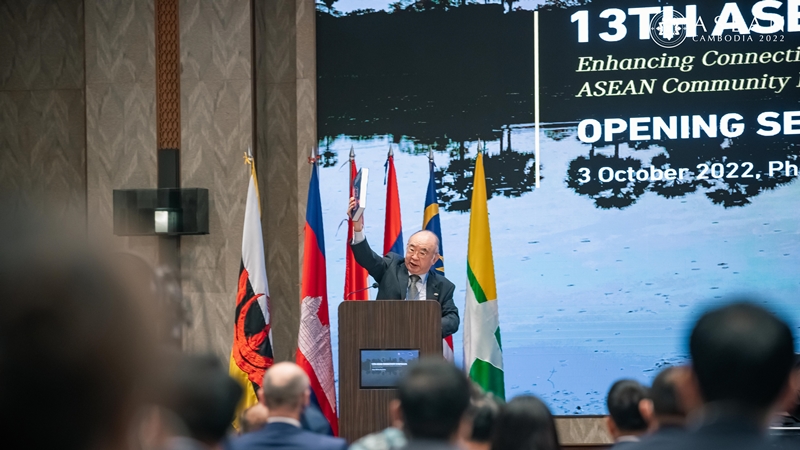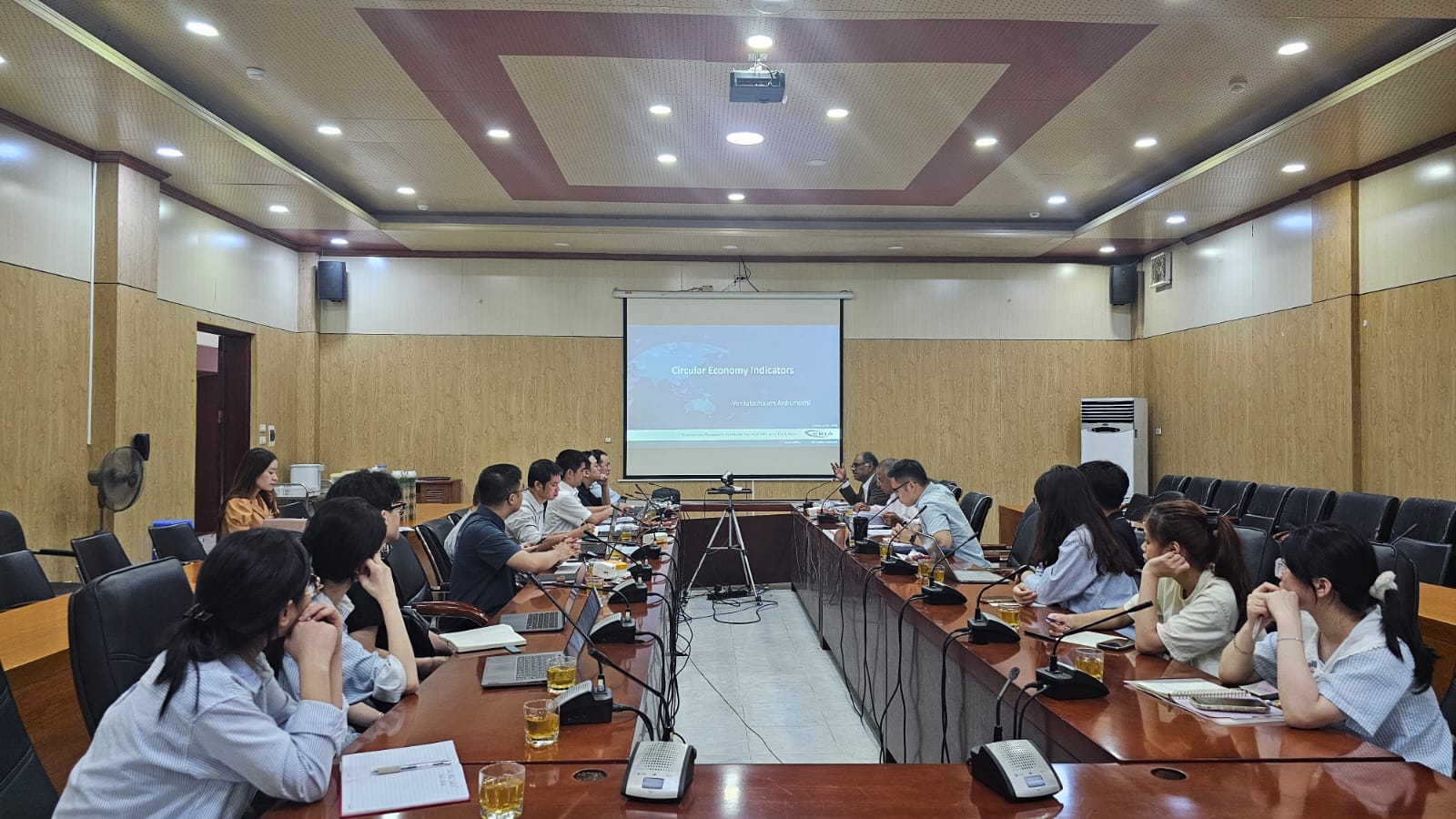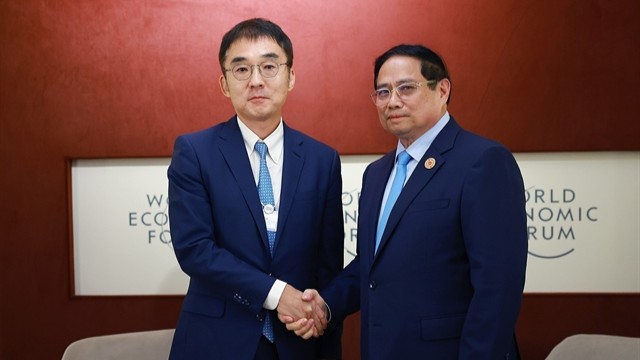13th ASEAN Connectivity Symposium Held in Phnom Penh
Date:
3 October 2022Category:
NewsTopics:
ASEAN, Cambodia, ConnectivityShare Article:
Print Article:
Phnom Penh, 3 October 2022: More than 150 participants from government, business, and academia joined the 13th ASEAN Connectivity Symposium held on 3 October 2022 in Phnom Penh. With the theme Enhancing Connectivity Towards an Inclusive, Sustainable, and Resilient ASEAN Community Post 2025 Vision, the 1-day in-person conference was organised by the Economic Research Institute for ASEAN and East Asia (ERIA), the Ministry of Foreign Affairs and International Cooperation of the Kingdom of Cambodia, and the Association of Southeast Asian Nations (ASEAN) Secretariat.
H.E. Dato Lim Jock Hoi, Secretary General of ASEAN, said in his opening remarks that despite the COVID-19 pandemic, Asia has shown resilience in economic development and maintained momentum in line with the Master Plan of ASEAN Connectivity (MPAC) 2025. He pointed out the importance of sustainable infrastructure and circular economy for urban areas, supporting mechanisms to facilitate connectivity coordination, youth participation in innovative solutions, and future-oriented and potential change for development.
Prof Hidetoshi Nishimura, ERIA President, touched upon ERIA’s contributions to the ASEAN connectivity project, such as the first version of the MPAC and the Comprehensive Asia Development Plan (CADP) in 2010. He announced the publication of CADP 3.0, which includes the comprehensive themes of the development topics of ASEAN and East Asia, such as trade and investment, physical infrastructure, energy and environment, healthcare and social protection, and agriculture and industrial development under the pillars of integration, innovation, inclusiveness, and sustainability. He added that digitalisation is important to achieve the challenges listed in the publication.
H.E. Prak Sokhorn, Cambodia’s Deputy Prime Minister and Minister of Foreign Affairs and International Cooperation, said in his welcome remarks that the symposium was timely as it enhanced ASEAN connectivity to a sustainable and resilient level amidst the post–COVID-19 pandemic recovery. He called for unity to strengthen the ASEAN community and its connectivity. Citing the vibrancy of MPAC 2025, he said a recent mid-term review of the master plan showed that connectivity was progressing. He reported that the supply chain remains resilient. ‘Crisis poses opportunities as well,’ he said.
The first panel session, ASEAN Connectivity Post 2025 Vision: Issues and Challenges, discussed the gaps in connectivity, such as uncertain sustainability, limited financial resources, weak partnership, and digital technology disruption. Prof Fukunari Kimura, ERIA’s Chief Economist, said that despite global geopolitical tensions, the economic reality is that international production networks in the region are resilient, and that it is necessary to take advantage of digital technologies and consider the agenda of digital connectivity for further development.
Ambassador Ong Keng Yong, Former Secretary General of ASEAN, moderated the session.
Session 2, Strengthening Partnership to Deliver MPAC 2025 and Beyond, drew out the point that although geopolitical tensions, the energy crisis, and price increases are significant, their positive impact is unprecedented innovation. The session concluded that during the 10 years that the ASEAN economy grew robustly, the region has also faced many challenges. The session discussed bankable and investment-ready projects, including high-rate, highly social, and sustainable financial returns.
H.E. Ambassador M.I. Derry Aman, Permanent Representative of the Republic of Indonesia to ASEAN, moderated the session.
Session 3, Building Sustainable Infrastructure and Digitalisation for Enhancing Connectivity, discussed financing sustainable infrastructure development and the role of the private sector. A panellist pointed out the significance to developing countries of knowledge transfer and capacity building. The session discussed how infrastructure projects should be more sustainable and more efficient from construction to maintenance.
H.E. Joseph J. Capuno, Undersecretary of the Investment Programming Group, National Economic and Development Authority of the Philippines, moderated the session.
H.E. Tauch Chankosal, Standing Secretary of State, Ministry of Public Works and Transport of the Kingdom of Cambodia, delivered the closing remarks. He said the connectivity symposium was an effective platform for the ASEAN Member States to engage with stakeholders in joint efforts and partnerships and to create synergy in the region. He added that information, suggestions, and viewpoints from the symposium would enhance sustainable and resilient ASEAN connectivity now and beyond 2025.
Photo credit: MFAIC (Ministry of Foreign Affairs and International Cooperation) of Cambodia








